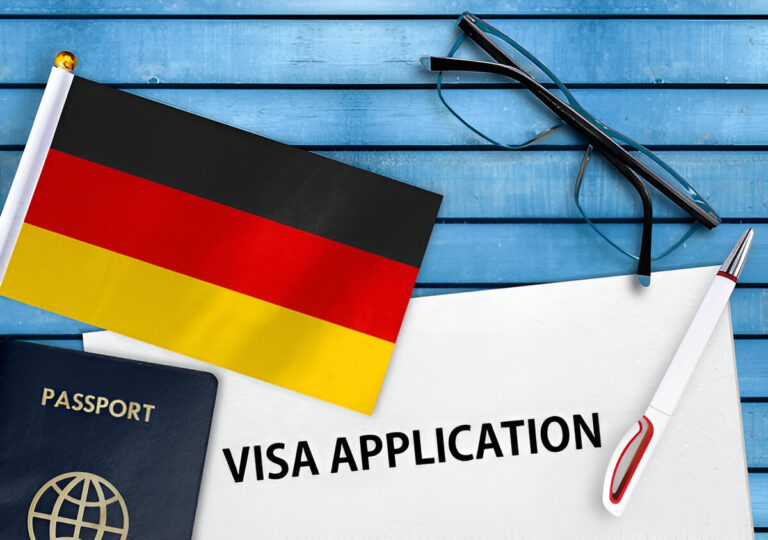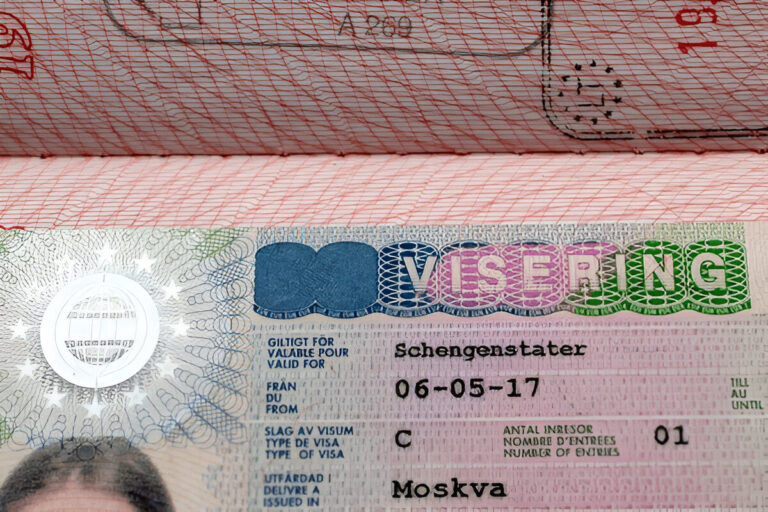Demark Jobs for Immigrants – Work in Denmark
Denmark is a nation renowned for its happiness, picturesque landscapes, and thriving economy, it has become a beacon for immigrants seeking better job opportunities and quality of life.
Whether you dream of working in a progressive workplace, enjoying world-class social benefits, or immersing yourself in a rich cultural experience, Denmark offers it all. But how do you navigate the Danish job market as an immigrant? This guide will provide you with everything you need to secure your dream job in Denmark.
Why Denmark?
Denmark consistently ranks as one of the happiest countries in the world. The nation’s exceptional work-life balance, robust economy, and commitment to sustainability make it a desirable destination for professionals and workers alike. Here are some compelling reasons to consider working in Denmark:
- High Demand for Skilled Workers: Denmark faces labor shortages in various sectors, including healthcare, IT, engineering, and construction. This demand opens doors for immigrants to secure lucrative positions.
- Attractive Salaries: Danish employers offer competitive salaries. On average, workers earn between DKK 40,000 and DKK 50,000 monthly, depending on the industry and experience level.
- Comprehensive Social Benefits: Employees in Denmark enjoy generous benefits, including healthcare, pension schemes, and paid parental leave.
- Work-Life Balance: A standard Danish workweek consists of 37 hours, and employees enjoy a minimum of five weeks of paid vacation annually.
- Inclusive Society: Denmark is known for its welcoming and inclusive environment, making it easier for immigrants to adapt.
Top Industries for Immigrants in Denmark
Certain sectors in Denmark are particularly open to hiring international talent. Here are the leading industries for immigrants:
1. Healthcare
Denmark’s aging population has created a high demand for healthcare professionals, particularly doctors, nurses, and caregivers. Foreign healthcare workers are highly valued and can benefit from streamlined immigration processes.
2. Information Technology (IT)
The Danish IT sector is booming, with roles for software developers, data analysts, and cybersecurity experts in high demand. Multinational companies like Microsoft and Google have operations in Denmark, offering exciting career opportunities.
3. Engineering and Construction
Skilled engineers and construction workers are essential for Denmark’s ambitious infrastructure projects. Civil engineers, architects, and skilled tradespeople such as electricians and carpenters are in high demand.
4. Education and Research
Denmark’s commitment to education and innovation means there are opportunities for teachers, researchers, and academic professionals across various disciplines.
Top Jobs with Visa Sponsorship Opportunities in Denmark
Denmark offers numerous job opportunities for international candidates, particularly in sectors with labor shortages. Many employers are willing to provide visa sponsorship to attract skilled professionals from around the world. Here are some of the top jobs with visa sponsorship opportunities:
1. Medical Professionals
- Roles: Doctors, nurses, and specialists (e.g., anesthesiologists, radiologists).
- Why Visa Sponsorship?: The healthcare sector in Denmark faces a significant shortage of qualified professionals, leading employers to sponsor visas for foreign talent.
- Average Salary: DKK 45,000 to DKK 60,000 monthly.
2. IT and Tech Experts
- Roles: Software developers, cybersecurity analysts, AI specialists, and IT project managers.
- Why Visa Sponsorship?: The digital transformation in Denmark requires highly skilled tech professionals, and many companies are open to hiring internationally.
- Average Salary: DKK 50,000 to DKK 70,000 monthly.
3. Engineers
- Roles: Mechanical engineers, civil engineers, and environmental engineers.
- Why Visa Sponsorship?: Infrastructure and sustainability projects demand skilled engineers, making this a high-priority area for visa sponsorship.
- Average Salary: DKK 50,000 to DKK 65,000 monthly.
4. Educators and Researchers
- Roles: Professors, lecturers, and scientific researchers in fields such as renewable energy and biotechnology.
- Why Visa Sponsorship?: Denmark’s focus on innovation and education ensures a steady demand for academic professionals.
- Average Salary: DKK 40,000 to DKK 55,000 monthly.
5. Skilled Tradespeople
- Roles: Electricians, plumbers, and carpenters.
- Why Visa Sponsorship?: A growing demand for skilled tradespeople in construction and renovation projects has led to visa sponsorship opportunities.
- Average Salary: DKK 35,000 to DKK 45,000 monthly.
6. Agricultural Workers
- Roles: Farmworkers, animal caretakers, and horticulturists.
- Why Visa Sponsorship?: The agricultural sector relies on seasonal and permanent workers to meet labor demands.
- Average Salary: DKK 25,000 to DKK 35,000 monthly.
7. Hospitality and Tourism Professionals
- Roles: Chefs, hotel managers, and tour guides.
- Why Visa Sponsorship?: Denmark’s thriving tourism industry often requires international talent to fill hospitality roles.
- Average Salary: DKK 30,000 to DKK 40,000 monthly.
How to Find Jobs in Denmark
Finding a job in Denmark as an immigrant requires preparation and strategy. Here are some proven methods:
1. Leverage Online Job Portals
Websites like Jobindex, Workindenmark.dk, and LinkedIn are excellent platforms for finding job opportunities in Denmark. Many job postings specify roles open to international candidates.
2. Network Actively
Networking is vital in Denmark. Attend job fairs, industry events, and seminars to connect with potential employers and peers. Joining professional groups on social media platforms can also help you stay informed about opportunities.
3. Work With Recruitment Agencies
Recruitment agencies such as Adecco and Randstad specialize in connecting immigrants with Danish employers. Registering with these agencies can fast-track your job search.
4. Utilize Government Resources
The Danish government’s Work in Denmark program offers free assistance to international job seekers. Their website features job listings and practical advice for immigrants.
Visa and Work Permit Requirements
To work in Denmark as an immigrant, you’ll need the appropriate visa or work permit. The requirements vary depending on your nationality and the type of work you intend to do:
1. EU/EEA Nationals
If you’re an EU/EEA national, you can work in Denmark without a visa or work permit. However, you must register with the authorities if your stay exceeds three months.
2. Non-EU/EEA Nationals
Non-EU/EEA nationals require a work permit. Denmark’s Positive List scheme makes it easier for immigrants with skills in high-demand fields to secure a permit. The Pay Limit Scheme is another pathway, allowing individuals with a job offer meeting a minimum salary threshold to qualify.
Tips for a Successful Job Application
Standing out in the Danish job market requires more than just qualifications. Here are some tips to boost your chances:
- Tailor Your CV and Cover Letter: Danish employers value concise and well-structured applications. Highlight your skills and experiences relevant to the role.
- Learn Danish: While many Danes speak English fluently, learning Danish can significantly improve your employability and integration prospects.
- Understand Danish Workplace Culture: Danish workplaces emphasize teamwork, flat hierarchies, and open communication. Familiarizing yourself with these cultural aspects can help you adapt quickly.
- Prepare for Interviews: Danish job interviews are typically informal but focused on assessing your skills and fit within the team. Be honest, confident, and enthusiastic.
Cost of Living in Denmark
While Denmark offers excellent job opportunities, it’s essential to consider the cost of living. Major cities like Copenhagen and Aarhus are relatively expensive, with housing, transportation, and food making up the bulk of expenses. However, the high salaries and social benefits often offset these costs.
Challenges Immigrants May Face
Like any relocation, moving to Denmark comes with challenges. Common issues include:
- Language Barrier: Although many jobs require English, fluency in Danish is often necessary for long-term career growth.
- Cultural Adjustment: Adapting to Danish social norms and workplace culture may take time.
- Finding Accommodation: The housing market in major cities can be competitive and costly.
Conclusion
Denmark is a land of immense opportunities for immigrants ready to embrace its culture and contribute to its economy. By understanding the job market, leveraging available resources, and preparing thoroughly, you can turn your dream of working in the country into reality.
Frequently Asked Questions
1. Can I find a job in Denmark without speaking Danish?
Yes, especially in sectors like IT and engineering, where English is widely used. However, learning Danish can enhance your career prospects.
2. What is the average salary in Denmark?
The average monthly salary ranges between DKK 40,000 and DKK 50,000, depending on the industry and role.
3. How do I get a Danish work visa?
You’ll need a job offer and must apply through schemes like the Positive List or Pay Limit Scheme if you’re a non-EU/EEA national.
4. Are there jobs for unskilled workers in Denmark?
Yes, industries like agriculture, hospitality, and cleaning services often hire unskilled workers. Fluency in Danish can be beneficial in these roles.
5. How long does it take to process a Danish work permit?
Processing times vary but generally range from one to three months. Plan accordingly to avoid delays.




